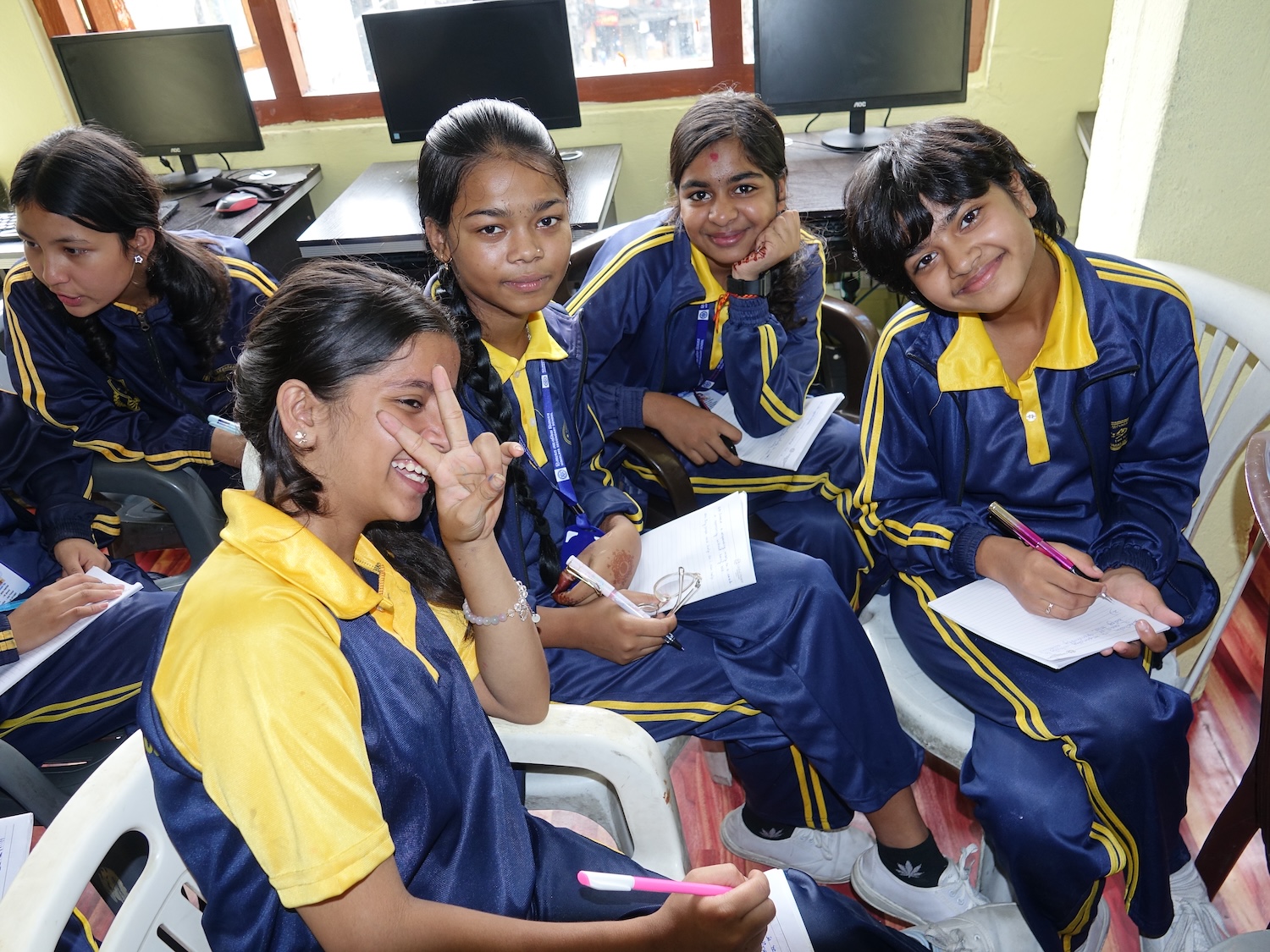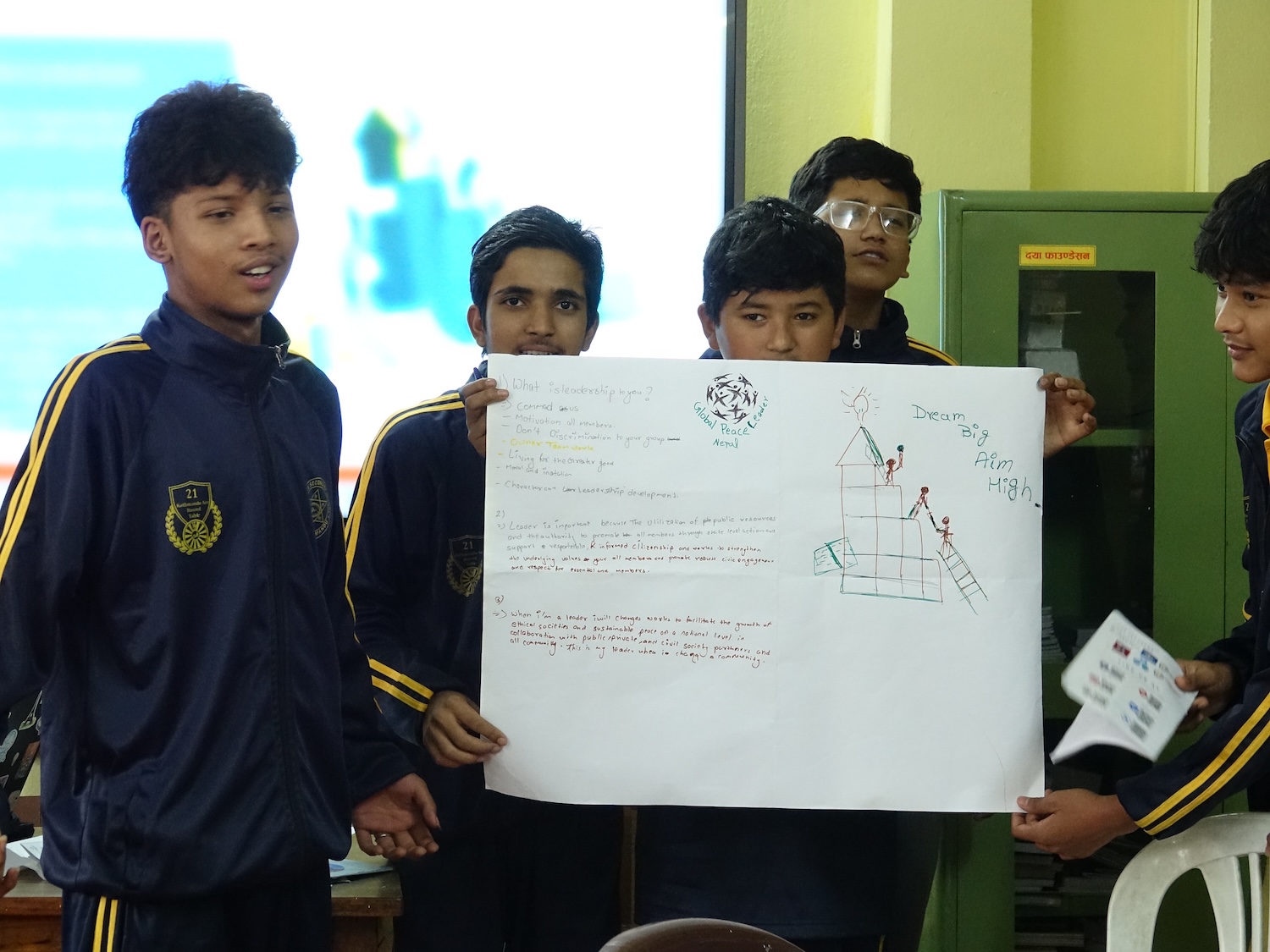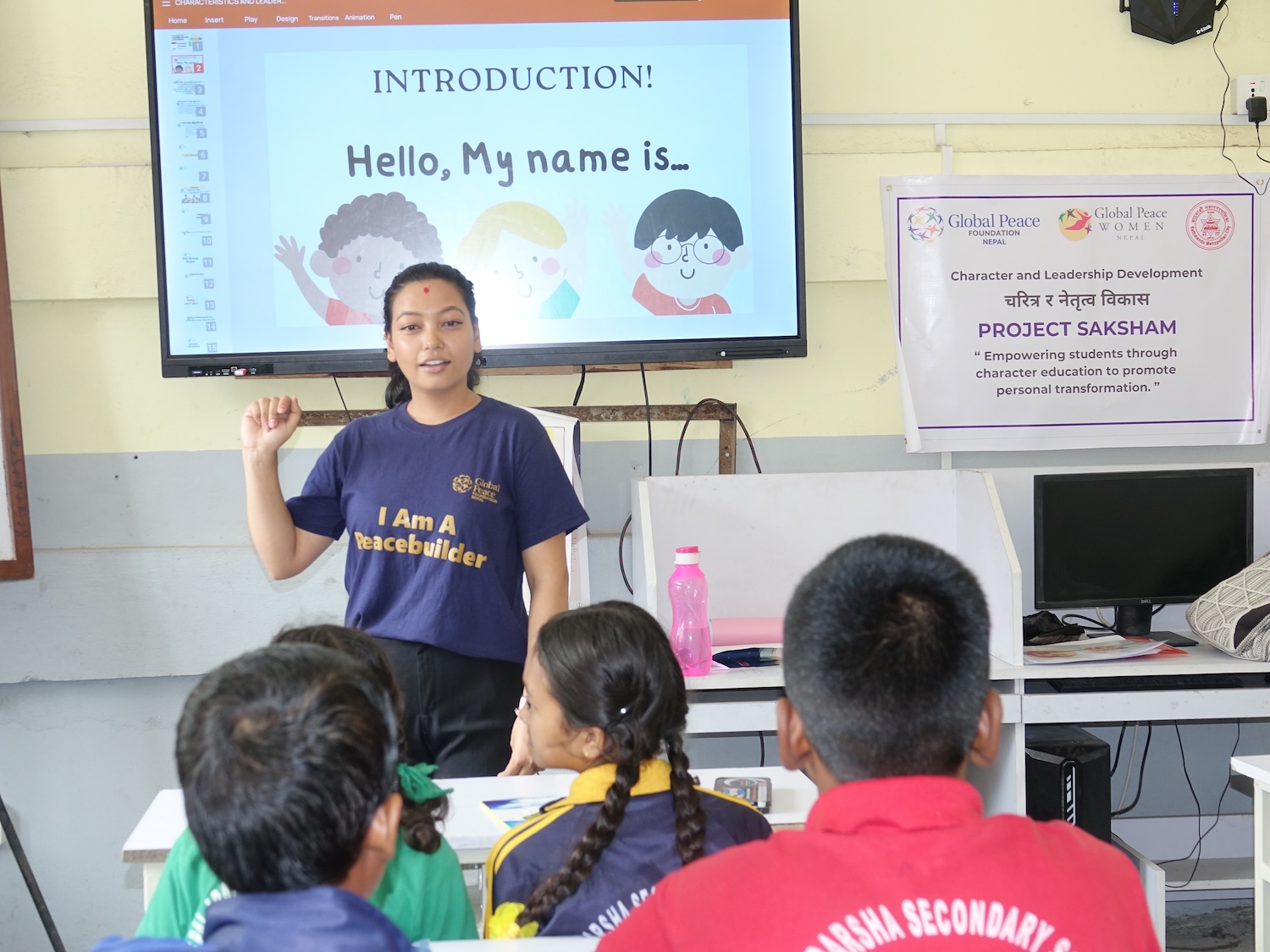
Students during a Project Saksham event discuss importance of values.
“The values that I want to instill in my son are the values that you are teaching to the kids in the school, which we, as parents, should be teaching them. I am happy that you are providing the environment for my son to learn and practice these values.” — Project Saksham parent
Global Peace Foundation (GPF) Nepal, in collaboration with Global Peace Women Nepal, has been educating values children for character and leadership development since 2022 through Project Saksham. The main goal of the program is to lay the foundation for peaceful mindsets that foster harmonious relationships within the family, society, nation, and eventually the world by instilling essential moral principles and values in each child.
As of September 2024, instilling the twelve values of self-discipline, responsibility, initiative, courage, humility, diligence, truth, honesty, thankfulness, attentiveness, obedience, and forgiveness to some 226 students has been completed at Bal Sarathi School, Chhahari Girls Hostel, Shree Nandi Secondary School, Trimurti Academy, New Star-Pole English Secondary School, Himalayan Secondary School, and Pragya Kunja School.

Students present group activity together.
There are a total of twelve sessions per school. Each session enhances the students’ need to learn values by helping them understand how each value is very important in every aspect of their lives. It also enhances the aspect of “learning by doing” by engaging the learners in discussion, brainstorming, presentation, role-playing, etc. The students are then encouraged to reflect on and make action plans on how they can apply the values in their personal lives.
As shared by one of the parents who is also the Principal of Pragya Kunja School, “In my own observations of my daughter Aadhya, I have noticed significant growth in her setting goals and action-taking abilities. As a result, Project Saksham has had a truly positive impact on students, resulting in behavioral changes of varying degrees.”

Project Saksham leader introduces activity to participants.
The project promotes personal transformation and prepares the children to become future moral and innovative leaders while cultivating a mindset for peace. It achieves this by focusing on the key areas of development.
Firstly, it instills tolerance and respect for differences among individuals, encouraging young learners to have a nonjudgmental attitude and embrace diversity. Secondly, the project focuses on developing the students’ emotional intelligence by teaching them how to control their emotions and actions, enabling them to make ethical decisions. Equipped with a moral compass, this helps them navigate through life’s challenges.
Additionally, accountability is nurtured in the learners by teaching them to take responsibility for their actions, helping them understand the consequences of their actions on both them and others. Above all, the students learned how all these values are interconnected with living for the greater good. As they grasp the importance of each value taught, they begin to understand how connecting with others’ feelings and serving others can foster peaceful relationships.
 Just recently, the forgiveness and thankfulness values have been taught to the students of Pragya Kunja School. Through these values, the students wrote heartfelt letters of forgiveness and thankfulness to their parents. This activity aims to help the kids express and communicate with their parents, helping to strengthen family bonds and nurture a culture of understanding among family members. The letters will be read by kids to their parents at the upcoming family day at school.
Just recently, the forgiveness and thankfulness values have been taught to the students of Pragya Kunja School. Through these values, the students wrote heartfelt letters of forgiveness and thankfulness to their parents. This activity aims to help the kids express and communicate with their parents, helping to strengthen family bonds and nurture a culture of understanding among family members. The letters will be read by kids to their parents at the upcoming family day at school.
Aside from the students, the volunteers who are the facilitators of the values education are also slowly growing personally and professionally. One of the volunteers, Sangse Hang Limbu shared, “Before joining as a volunteer, my confidence was low, and I struggled to communicate with others in a group setting. However, since I started volunteering, I have noticed a significant improvement in both my confidence and public speaking abilities. Additionally, my ability to recognize and understand different perspectives has grown, allowing me to easily connect with others, especially the students I work with. I now have a deeper understanding of their emotions and feelings, enabling me to effectively interact with them. Being a Global Peace Volunteer has not only helped me achieve my personal goals, but it has also enhanced my ability to empathize with others. I am truly grateful for this experience.”
In its third year, the project kicked off its journey of shaping the future with the first day dedicated to building rapport with the learners on September 13, 2024, to the new eight schools. GPF and GPW Nepal have partnered with the Department of Education of Kathmandu Metropolitan City to deliver character and leadership development to selected students of eleven Government schools.
One of the teachers who attended the first session as an observer expressed, “This education is significant for all the students’ holistic development. I will encourage other students to join the next sessions.”
GPF and GPW Nepal will continue their journey in equipping moral values to more young people in the country to become responsible and virtuous citizens and leaders.
Building peace through character education is a gradual yet powerful process. By focusing on one child and one school at a time, we can foster a generation that values empathy, respect, and collaboration. As we invest in character education, we are not just shaping individual futures but also laying the groundwork for a more peaceful and equitable society. The journey may be long, but the results are worth the effort.
Read more stories celebrating International Day of Peace.


